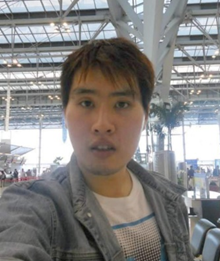
A team of Faculty of Business and Finance (FBF) academics added a feather in their caps when they were conferred the Best Paper Award at The Asian Academy of Management (AAM) International Virtual Conference, organised by Universiti Sains Malaysia from 3 to 5 December 2021.




From left: Dr Choong, Seow, Teh, and Dr Peter Tan
The team consisted of main author Deputy Dean for R&D and Postgraduate Programmes Dr Choong Yuen Onn, and co-authors, namely FBF academics Seow Ai Na, Julian Teh Hong Leong, Dr Peter Tan Sin Howe, along with Universiti Utara Malaysia (UUM) academic Dr Hafizah binti Mohammad Ismail.
The award-winning research was titled “The Mediating Effect of Digital Transformation Extent on the Relationship between Managerial Proactiveness and Business Resilience: Government Intervention as a Moderato”, and they received RM1,000 cash prize. “This project has been carried out under the funding of Universiti Tunku Abdul Rahman Research Fund Project No. IPSR/RMC/UTARRF/2021-C1/C04 provided by UTAR. Our special thanks to UTAR for giving us the opportunity to carry out this project. Successful teamwork relies very much upon synergism existing among members where all are eager to contribute their thoughts and commitment,” said Dr Choong.
Themed ‘Rethinking Old Notions of Business Management: Building Resilience and Driving Impact’, the conference aimed to encourage collaborative research and projects amongst institutions of higher learning and industries in addressing the issues of change and business sustainability, as well as to establish networking and engagement among the academicians, practitioners, government officials and community. The conference also provided a platform for scholars and practitioners to debate and disseminate research findings undertaken in various topics that will contribute to new and expanding research ideas from various areas. It was also an opportune platform for industry and policymakers to get feedback from research ideas and findings presented at the conference.
When asked about the inspiration that kick-started the research, Seow, who previously worked in corporate, explained, “SMEs sectors play an essential role in fostering gross domestic income growth, employment and economy in Malaysia. Due to the Covid-19 pandemic global crisis, many SMEs were caught unprepared and experienced challenging times. Although many firms have attempted to tolerate further, some are facing difficulties to sustain their businesses. Government interventions are needed to overcome the problems as the key is to act quickly to implement responses. In particular, digital tools bring many significant benefits to firms. It helps the firms keep up with emerging customer demands and hence survive in the face of the future. Thus, this has motivated us to study the business resilience of the SMEs, as it is essential for them to opt for a retreat strategy and apply creativity to obtain business opportunities.”
The research looks into Small and Medium-sized Enterprises (SMEs) as one of the important sectors in the country. The researcher explained that, as a result of the competitive global business climate, unexpected changes and turbulent events are causing major challenges for the SMEs. Hence, the research aimed to analyse the mediating effect of digital transformation on the relationship between managerial proactiveness and business resilience. In addition, the role of government intervention is used to moderate the relationship between digital transformation and business resilience.
Dr Choong explained further on the practicality of the research, “Digital transformation opens opportunities for proactive managers to contribute towards a firm’s resilience by providing the foundation for developing core organisational competencies. Firms that are well equipped with advanced technologies are more able to respond to the market efficiently. If firms actively adopt the right digital solutions, they could easily sustain their business or bounce back fast enough to achieve resilience. Thus, the Malaysian government is advised to continuously analyse market changes that are associated with SMEs by developing adaptation plans including programmes on information technology and innovation. The research also contributes a value-based guideline for SMEs to foster social interaction with potential new blood – the younger generations, and creates fertile ground for product/service ideas and business growth.”
Dr Peter Tan said, “This project is related to Sustainable Development Goals (SDGs) 8: Decent Work and Economic Growth, where the study is in line with the government to encourage the formalisation and growth of SMEs via financial services. The development-oriented policies for productive activities are implied for entrepreneurship, innovation and future job creation. In addition, the study is also associated with SDG 9: Industry, Innovation and Infrastructure. The results of this research could provide insight to the policymakers in restructuring the SMEs to make them sustainable, providing the improved resource-use efficiency and backing for greater adoption of digital technologies.”
Teh added further on how UTAR contributed significantly to winning this award, “We all have been working in UTAR for more than 10 years. UTAR has provided us with a great platform to learn and gain advanced knowledge in the world of business research by teaming up with experts from the world’s top universities and business corporations. Our research centres also welcome the staff, students and industries to explore and conduct research together. Besides, there is plenty of attractive research funding from internal and external sources to promote journal publications as well.”
© 2021 UNIVERSITI TUNKU ABDUL RAHMAN DU012(A).
Wholly owned by UTAR Education Foundation (200201010564(578227-M)) LEGAL STATEMENT TERM OF USAGE PRIVACY NOTICE